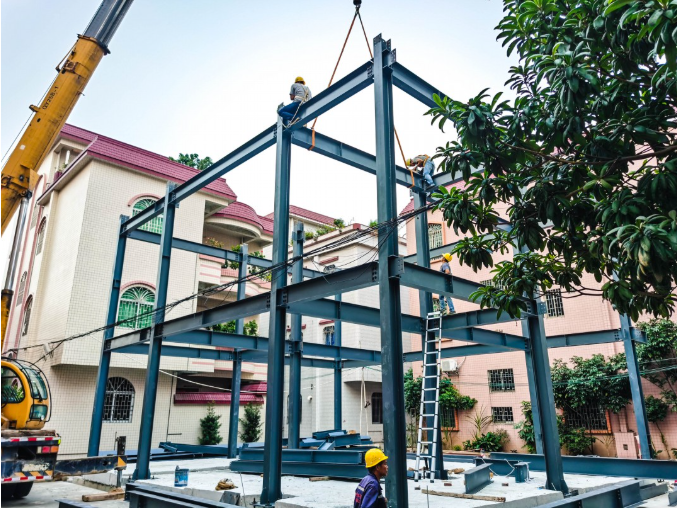Analysis of Construction Challenges and Safety Precautions for Steel Structure Mezzanine Floors
In steel structure mezzanine construction sites, space constraints often make it difficult to transport main beams into position. Beams may need to be segmented externally before being connected and hoisted into place manually with limited mechanical assistance.

Anchoring System (Rooting)
The anchoring system serves as the fundamental safety element - transferring loads from the new mezzanine through main beams to the original structure, much like tree roots stabilizing a trunk. Critical considerations include:
Conduct thorough assessment of base material hardness, thickness, and reinforcement layout
Use core drilling methods that minimize damage to structural reinforcement
Strictly adhere to specified hole depth/diameter requirements
Select anchor bolts based on calculated roof loads
Clean drill holes meticulously before bolt installation
Control installation speed (2000-3000 rpm) for optimal adhesive mixing
Implement post-installation curing periods according to ambient temperature
Design anchor plates with appropriate thickness and area, considering potential reinforcement conflicts
Conduct pull-out tests on random anchor samples
Fill gaps between anchor plates and concrete members with grout or epoxy
Allow complete curing before applying structural loads
Main Beam Selection
Key factors for main beam configuration:
Select appropriate sections (I-beams, H-beams, or box sections) based on span and load requirements
Consider fabrication constraints:
• Surface preparation (grinding/rust removal)
• Precision cutting
• Priming treatmentPrefer standard rolled sections for shorter spans to avoid complex welding
Conduct field measurements before final cutting
Account for transportation and hoisting challenges
Connection Methods
Primary connection techniques:
A. Welding:
Implement groove welding for joint preparation
Follow specified welding procedures
B. High-strength Bolting:Use pre-tensioned friction connections
Ensure proper surface treatment
Construction Safety Measures:
Personal Protection
Mandatory safety helmets in work areas
Fall arrest systems for elevated work
Designated smoking areas
Site Safety Management
Regular inspection/upgrading of:
• Fire prevention systems
• Guard railings
• Fall protection equipmentWinter-specific measures:
• Ice/snow removal from access routes
• Anti-slip materials (straw mats/wooden planks)
• Frostbite prevention protocols
Electrical Safety
Grounding protection for heating elements
Prohibition of unauthorized heating devices
Fire Prevention
Fire watch personnel for hot work
Combustible material isolation
Permit-controlled ignition sources
Material Handling
Proper rigging procedures for manual beam placement
Segmented transportation planning for confined spaces
Quality Control
Non-destructive testing of critical connections
Dimensional verification before hoisting
Load testing verification
This comprehensive approach addresses both technical challenges and safety management requirements for steel mezzanine construction in constrained environments, ensuring structural integrity while maintaining safe working conditions.



